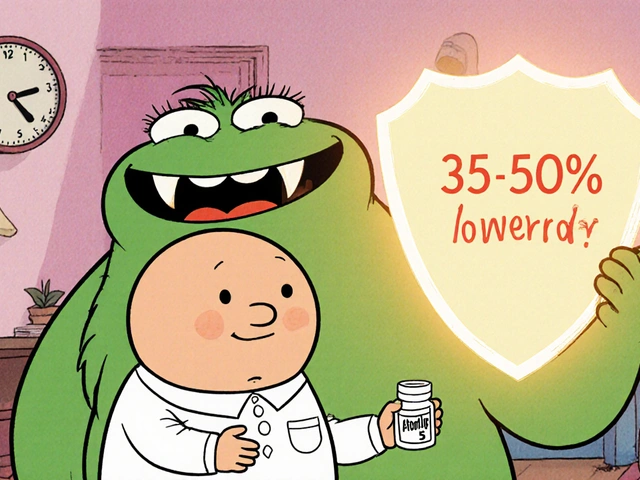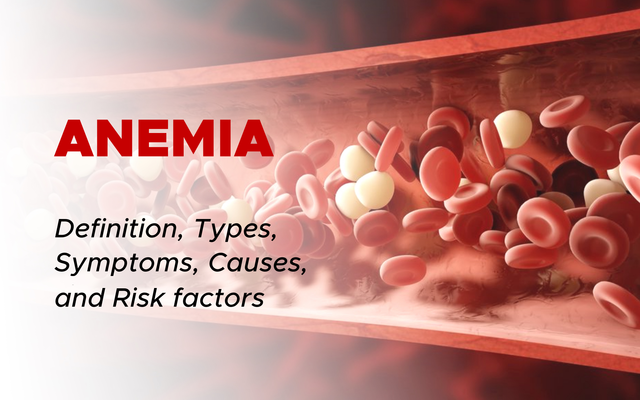Understanding Thyroid Deficiency in Children
Thyroid deficiency in children, also known as hypothyroidism or underactive thyroid, is a hormonal imbalance that can lead to various health issues. As a parent, it's essential to understand this condition to identify the signs and symptoms and seek appropriate treatment for your child. In this article, we will discuss the causes, symptoms, and treatment options available for thyroid deficiency in children.
Causes of Thyroid Deficiency in Children
Thyroid deficiency in children can be caused by several factors. Some children are born with an underdeveloped or absent thyroid gland, a condition known as congenital hypothyroidism. Other possible causes include iodine deficiency, problems with the pituitary gland, and certain medications. In some cases, the cause of the deficiency is unknown. Identifying the cause is crucial for determining the appropriate treatment plan for your child.
Signs and Symptoms of Thyroid Deficiency in Children
Thyroid deficiency can present various signs and symptoms in children, depending on their age and the severity of the condition. Some common symptoms include:
Physical Symptoms
Children with hypothyroidism may experience growth delays, weight gain, fatigue, dry skin, hair loss, and constipation. They may also have a puffy face, slow reflexes, and brittle nails. These physical symptoms can cause discomfort and may impact your child's daily life.
Developmental and Intellectual Symptoms
Thyroid deficiency can also affect a child's cognitive development and learning abilities. Symptoms may include developmental delays, poor concentration, memory issues, and difficulty in learning new skills. Early diagnosis and treatment are crucial in preventing long-term developmental problems.
Emotional and Behavioral Symptoms
Children with thyroid deficiency may also experience emotional and behavioral symptoms such as depression, irritability, and mood swings. These symptoms can impact their social interactions and overall well-being.
Diagnosing Thyroid Deficiency in Children
If you suspect your child has a thyroid deficiency, it's essential to consult with a pediatrician or endocrinologist. The doctor will perform a physical examination and may order blood tests to measure the levels of thyroid hormones. These tests can help confirm the diagnosis and determine the severity of the condition.
Treatment Options for Thyroid Deficiency in Children
Treatment for thyroid deficiency in children typically involves hormone replacement therapy. Synthetic thyroid hormone medication, such as levothyroxine, is commonly prescribed to help normalize hormone levels. The doctor will carefully monitor your child's progress and may adjust the dosage as needed. It is essential to follow the prescribed treatment plan to ensure your child's growth and development remain on track.
Monitoring Your Child's Progress
Regular follow-up appointments with your child's healthcare provider are crucial for monitoring their progress and ensuring the treatment plan is effective. The doctor will likely perform routine blood tests to check thyroid hormone levels and may adjust the medication dosage if necessary. It's essential to attend these appointments and discuss any concerns you may have with your child's healthcare provider.
Nutrition and Lifestyle Recommendations
While medication is the primary treatment for thyroid deficiency, a healthy diet and lifestyle can also play a role in supporting your child's thyroid health. Ensuring your child consumes an adequate amount of iodine through their diet is essential, as iodine is necessary for thyroid hormone production. Foods rich in iodine include fish, dairy products, and iodized salt. Additionally, encouraging your child to engage in regular physical activity can help maintain a healthy weight and promote overall well-being.
Supporting Your Child Emotionally
Dealing with a thyroid deficiency can be challenging for children, both physically and emotionally. It's essential to provide emotional support and understanding to help your child cope with their condition. Encourage open communication and let your child know that it's okay to express their feelings and concerns. Providing a nurturing and supportive environment can help your child feel more confident and secure as they navigate their health journey.
Conclusion
Thyroid deficiency in children is a manageable condition with appropriate diagnosis and treatment. By understanding the signs and symptoms, seeking medical intervention, and following the prescribed treatment plan, you can help your child lead a healthy and fulfilling life. Additionally, providing emotional support and fostering a healthy lifestyle can further support your child's overall well-being and development.
 App-Based Prescribing: Best Platforms for Getting Generic Medications in 2025
App-Based Prescribing: Best Platforms for Getting Generic Medications in 2025
 Top 10 Reliable Alternatives to Drugwatch for Drug Information
Top 10 Reliable Alternatives to Drugwatch for Drug Information
 Compare Atorlip 5 (Atorvastatin) with Alternatives: What Works Best for Cholesterol
Compare Atorlip 5 (Atorvastatin) with Alternatives: What Works Best for Cholesterol
 Understanding Anemia: Causes, Symptoms, and Treatments
Understanding Anemia: Causes, Symptoms, and Treatments
 Generic Drug Concerns: Myths vs. Reality for Safety and Efficacy
Generic Drug Concerns: Myths vs. Reality for Safety and Efficacy
Kasey Lauren
May 11, 2023 AT 14:15Hang in there, you’re doing great for your kid!
joshua Dangerfield
May 12, 2023 AT 14:15I totally get how overwhelming all that medical jargon can feel. Just remember that early detection can change a whole lot for a child’s future, so don’t hesitate to get those labs done. It’s okay to feel scared, but you’re not alone in this journey.
Abhimanyu Singh Rathore
May 13, 2023 AT 14:15Indeed, the endocrine system, when compromised, manifests through a cascade of clinical signs; notably, growth retardation, dyslipidemia, and neurocognitive delays-each demanding meticulous assessment. Moreover, the physician must not overlook subtle dermatologic cues, such as xerosis or brittle nails, which often precede overt hypothyroidism. Consequently, a comprehensive work‑up, inclusive of TSH and free T4 assays, remains indispensable.
Stephen Lewis
May 14, 2023 AT 14:15It is imperative that caregivers maintain a diligent schedule of follow‑up appointments to monitor serum thyroid hormone concentrations. Adjustments to levothyroxine dosing should be made based on objective laboratory data, rather than conjecture. Additionally, the integration of dietary iodine can serve as an adjunctive measure, though it should not supplant pharmacologic therapy.
janvi patel
May 15, 2023 AT 14:15Honestly, some of these “symptoms” sound like anything else a kid could have.
Lynn Kline
May 16, 2023 AT 14:15Remember, you’re the champion of your child’s health! 🌟 A balanced diet brimming with iodine‑rich foods-think sea‑weed snacks, dairy delights, and fresh fish-can give those thyroid glands a friendly boost. Keep the energy up with fun activities; it’s amazing how movement can reinforce overall wellbeing.
Rin Jan
May 17, 2023 AT 14:15Look, I’m not trying to be a buzzkill here, but let’s face facts: ignoring a thyroid deficiency is basically signing a death warrant for a child’s potential. When you skip the check‑ups, you’re not just postponing paperwork-you’re actively endangering growth plates, cognitive development, and emotional stability. It isn’t merely a “little sluggishness” that will pass; it’s a systemic hormonal void that can rewrite a child’s entire trajectory. The hormone replacement isn’t a luxury; it’s a medical necessity, plain and simple. If you think a bit of levothyroxine is a hassle, consider the alternative-persistent fatigue, learning difficulties, and an entire lifetime of remedial therapy. And don’t even get me started on the social stigma that comes with unaddressed behavioral swings; it’s a minefield for any child. Parents need to step up, schedule those labs, and trust the endocrinologist’s dosage plan. Anything less is a disservice to the kid’s future, and honestly, it’s hard to argue with the data. So, buckle down, stay consistent with medication, and watch those growth curves finally start to climb the right way.
Jessica Taranto
May 18, 2023 AT 14:15Totally agree with the earlier point-early labs are key; also, keep a log of any mood changes or weight fluctuations, it really helps the doctor fine‑tune the dose.
akash chaudhary
May 19, 2023 AT 14:15What a load of nonsense. Anyone who thinks “just a few pills” will fix everything is living in a fantasy. The dosage adjustments are far more complex than you realize, and most parents don’t even understand the half‑life of levothyroxine. This whole post sugar‑coats a serious endocrine disorder into something benign.
Adele Joablife
May 20, 2023 AT 14:15While I value a thorough approach, the tone here feels overly dramatic. Let’s keep the focus on practical steps and avoid turning a medical condition into a moral panic.
kenneth strachan
May 21, 2023 AT 14:15Sure, you think you’re being realistic, but you’re just feeding fear. Everyone knows the “drama” is just a catchy headline to get clicks. The real story? Most kids thrive with proper meds, no need for the apocalypse vibe.
Mandy Mehalko
May 22, 2023 AT 14:15Don’t let the negativity bring you down-small steps and consistent care make a world of difference.